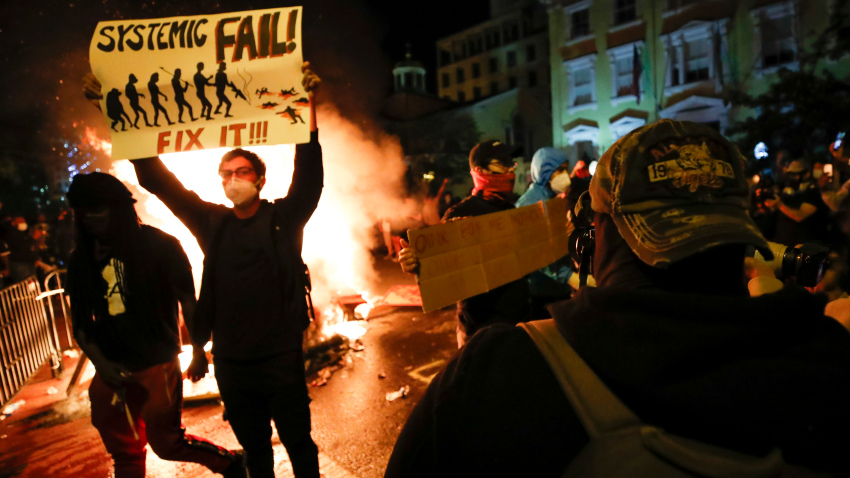Protests rage across the United States. Fires. Shootings. The President turned off the lights and hid in a bunker. And as this tragic moment unfolds, for reasons I will explain shortly, the conservative figure of Justice Frankfurter looms large in my mind. The link between these protests and words Frankfurter wrote generations ago is clear, once we choose to pay attention.
The setting was the deep and long-standing population inequalities in electoral districts across the country. Districting lines had last been set at the turn of the century, so that by 1940 they came to mean nothing as the Great Migration brought large numbers of people to the North and from rural America to the cities. This is what the lines came to mean specifically in Illinois after the 1940 census: the population of the smallest congressional district was 112,000, the largest was over 900,000. The same was true all across the United States.
Reformers could not secure relief from state legislatures, for obvious reasons. This was self-interest on steroids. The same was true of members of Congress. The US Supreme Court was the only institution that could help remedy this problem and yet, in an opinion authored by Justice Frankfurter, the Court refused. In Colegrove v. Green, Frankfurter argued that this was a political question, assigned by the Constitution to Congress. And were Congress to fail “in exercising its powers,” Frankfurter counseled, “whereby standards of fairness are offended, the remedy ultimately lies with the people.” Years later, in Baker v. Carr, Frankfurter repeated his admonition: “Appeal must be to an informed, civically militant electorate. In a democratic society like ours, relief must come through an aroused popular conscience that sears the conscience of the people’s representatives.”
In short: if Congress won’t listen, the people must take the streets.
But here’s the problem, which I don’t think Frankfurter could appreciate. As Nikole Hannah-Jones put it in this morning’s Times’ Daily: “Black people have protested peacefully, and Black people have burned it down. And in the end, the cycle of police violence, it all remains largely unchanged.” Taking the streets, whatever that meant to Frankfurter, clearly wasn’t enough. Consciences must be “seared.” Or in Hannah-Jones’ words: “How do you get enough white Americans to care?” Here’s how: “The truth is that, we know Americans pay attention to violence. Had there been no fires, had there been no looting, no physical confrontations with the police, these stories of police protest right now would have gone or maybe a few minutes on the local news cycle. But we wouldn’t see the wall-to-wall coverage that we’re seeing every day.”
One way to understand the rage and anguish seen across the country in the last week is as a response to Frankfurter. Precisely when we need them most, our representative institutions are failing us. Our leaders are failing us. At the root of this problem is the unrepresentative nature of our political institutions. In a replay of the earlier cases, reformers recently asked the Court for help in curbing extreme partisan gerrymanders. Hiding behind the narrative of non-intervention, the Roberts Court refused, channeling their inner-Frankfurter. These protests are nothing but an extension of this refusal. Protesters are doing the only thing left for them to do, just as Frankfurter suggested years ago.
